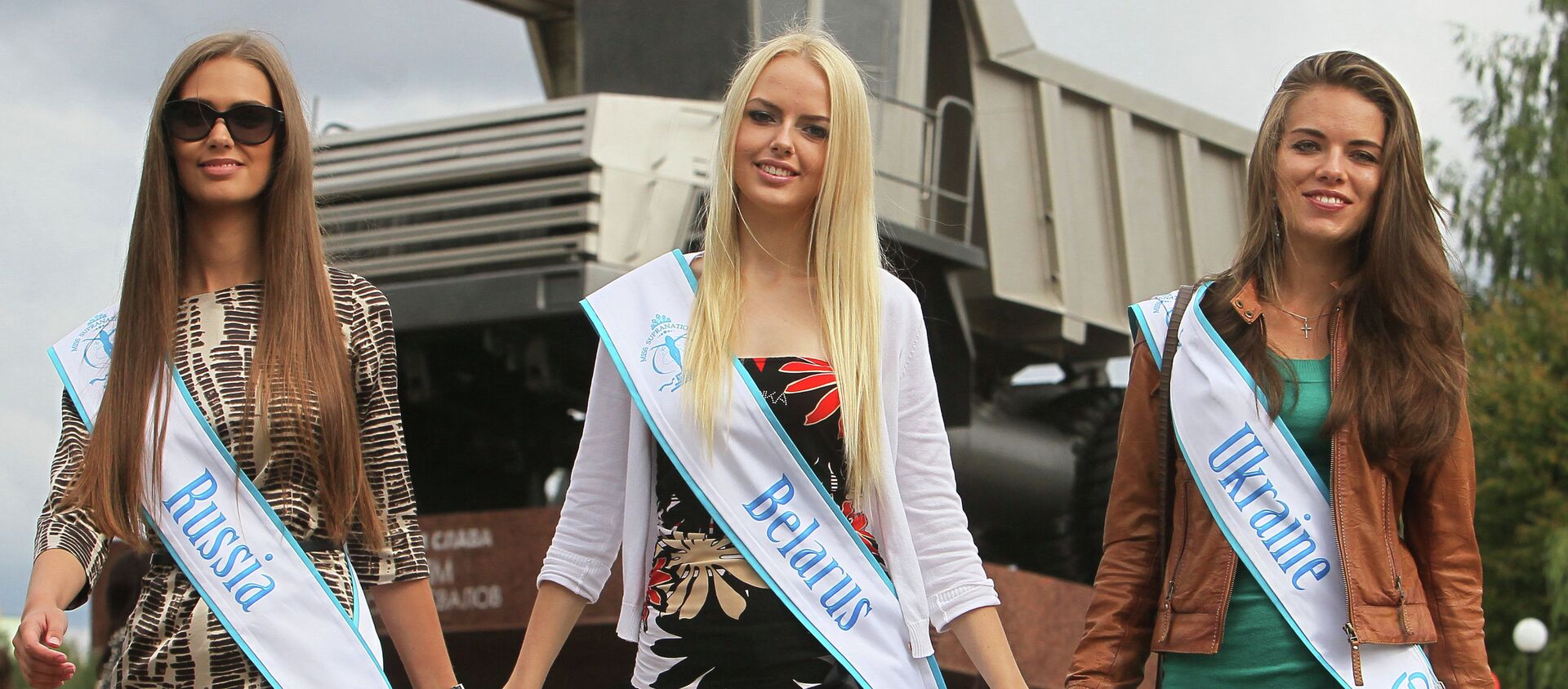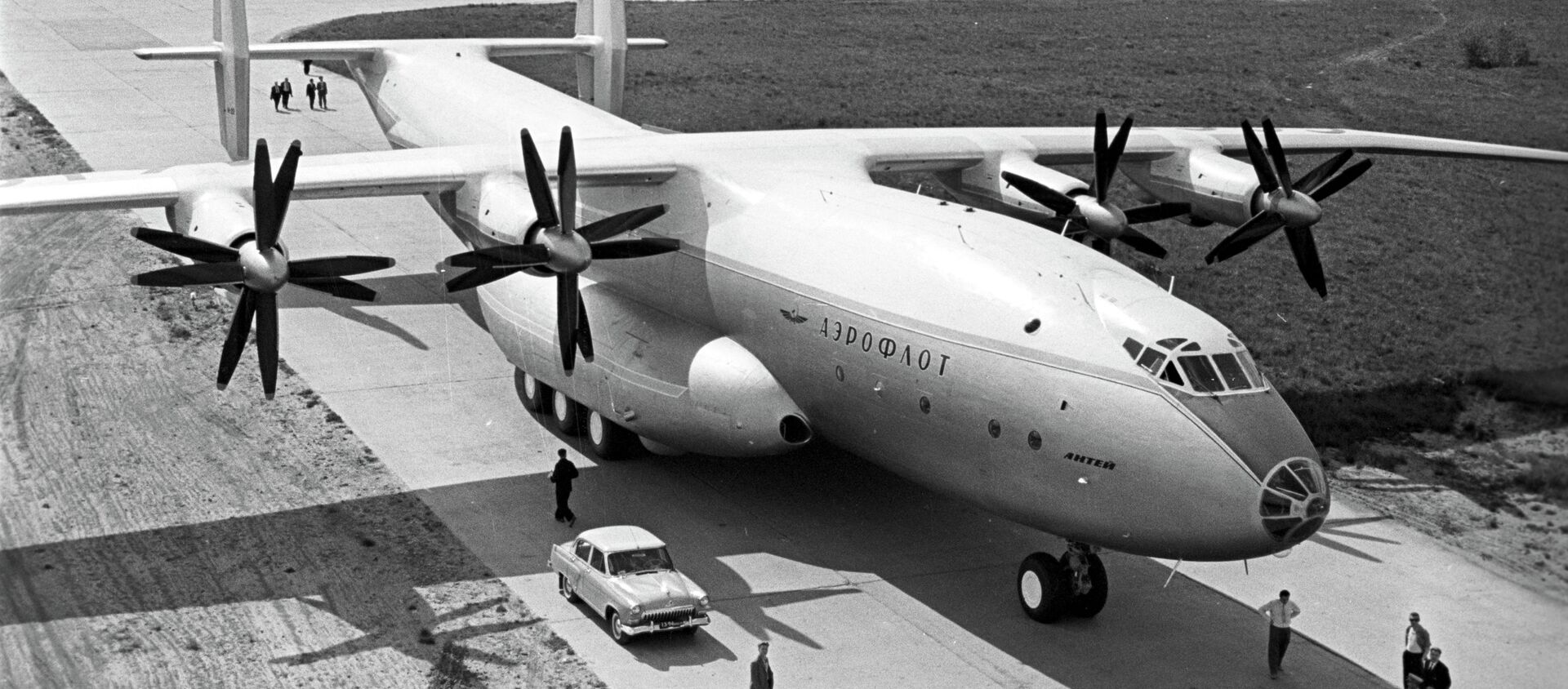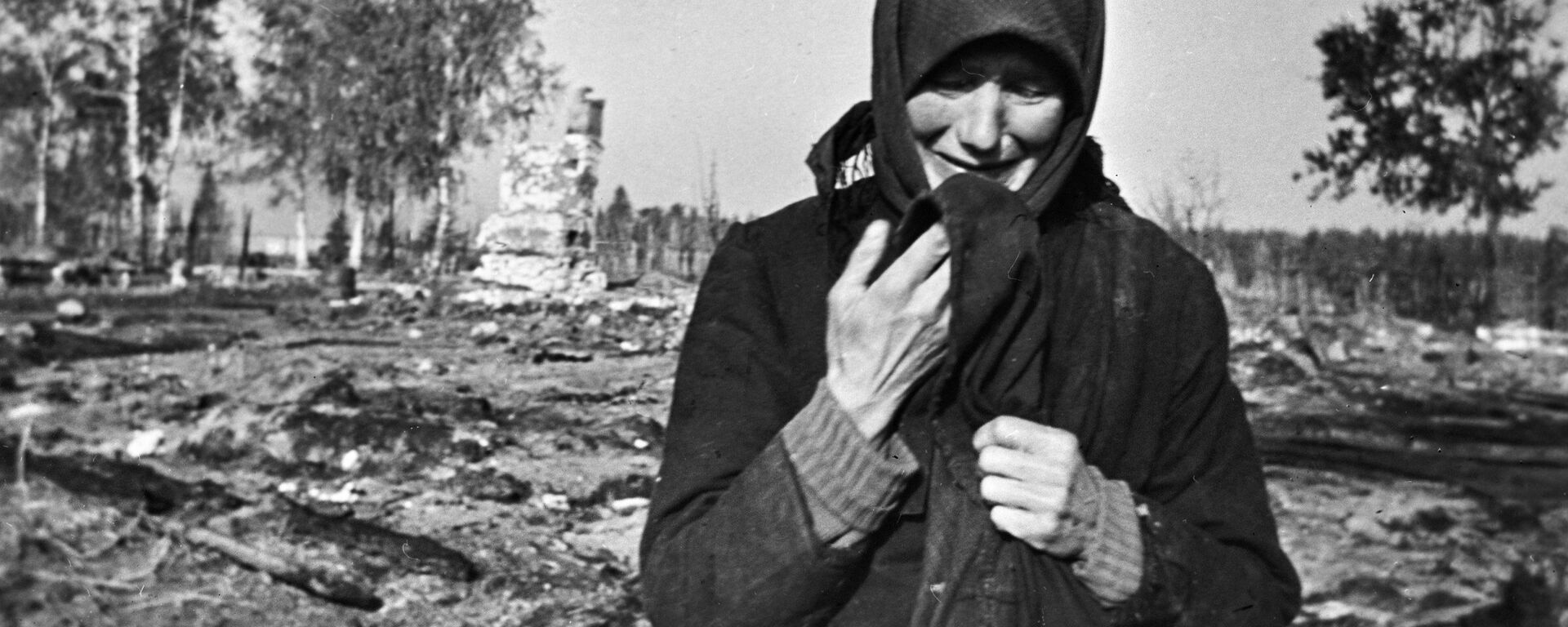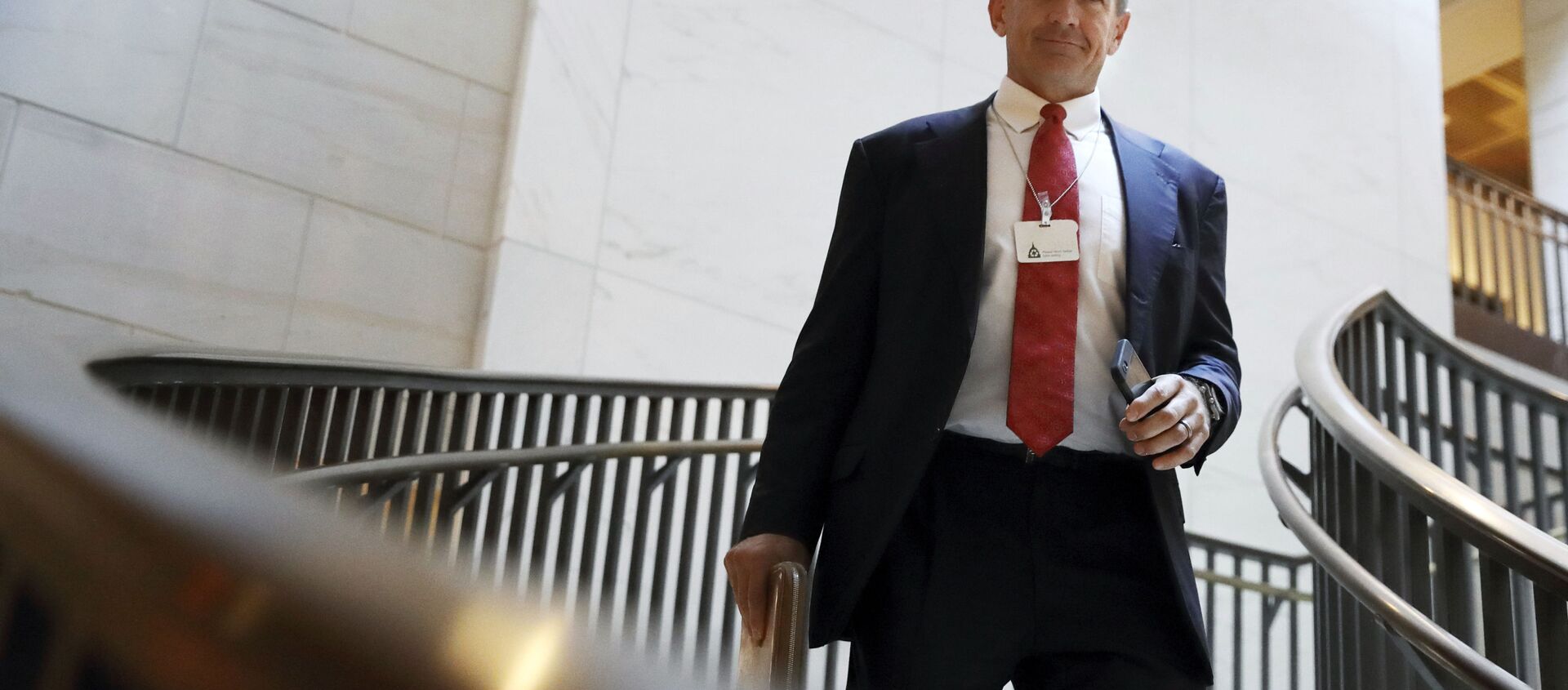Putin Sees 'Wall' in Relations Between Russia and Ukraine as 'Great Common Misfortune, Tragedy'
14:15 GMT 12.07.2021 (Updated: 19:54 GMT 12.07.2021)
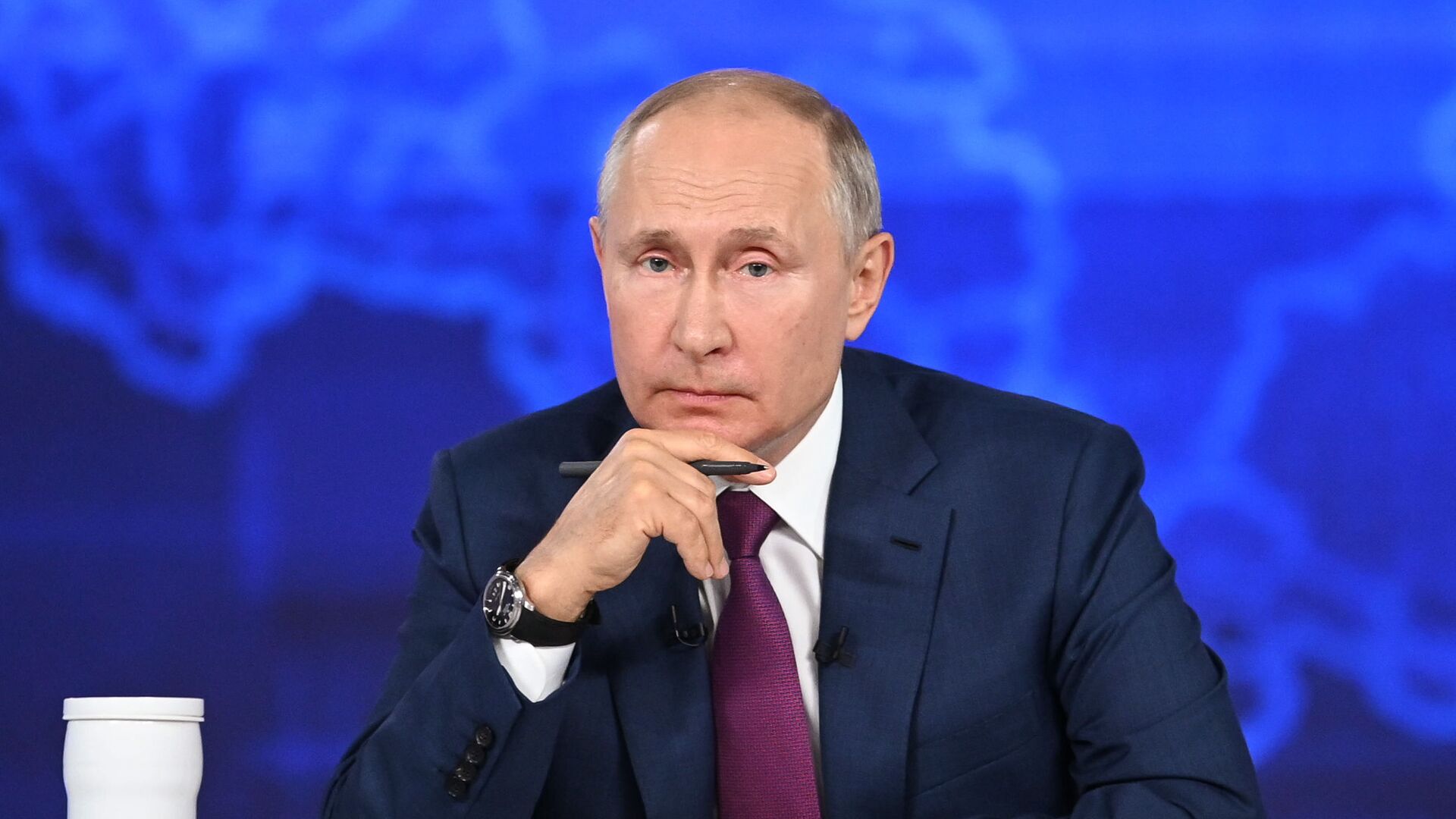
© Sputnik / Aleksey Nikolskyi
/ Subscribe
Relations between Russia and Ukraine deteriorated to a historic low in the aftermath of the February 2014 Maidan coup d'etat, during which Ukraine's democratically elected government was toppled by pro-EU and pro-US forces. The coup led Crimea to break off from Kiev and rejoin Russia, and sparked a civil war in eastern Ukraine.
Russian President Vladimir Putin has indicated that he sees the current "wall" in relations between the Russian and Ukrainian peoples as a "great common misfortune and tragedy."
In an essay published on the president's official website on Monday entitled "On the Historical Unity of Russians and Ukrainians," Putin accused the West of directly interfering in Ukraine's domestic affairs in 2014, and suggested that aggressive Russophobia peddled by ultra nationalists began to form the country's state politics since that time.
"Recently, while answering a question during my Direct Line Q&A session about Russian-Ukrainian relations, I said that Russians and Ukrainians are one people – a common whole. These words are not a tribute to some kind of conjecture, to political circumstances of the moment. I have spoken about this more than once before, this is my conviction," Putin wrote.
"Let me stress at the outset that I consider the wall in relations which has emerged in relations between Russia and Ukraine, between parts of what is in essence a single historical and spiritual space, as a big common misfortune, as a tragedy," he added.
Putin suggested that the current state of affairs was "first and foremost" the consequences of Russia's own mistakes during various historical periods. "But it is also the result of the deliberate work of those forces who have always sought to undermine our unity. The formula used has been known from time immemorial -divide and conquer. There is nothing new here."
It is the use of this formula which has resulted in attempts to play on the national question – to sow discord between people, and, as a "super task" to divide them and play off these various parts against one another, Putin argued.
The president went on to recall that the East Slavic peoples – Russians, Ukrainians, and Belarusians – are all "heirs of Ancient Rus, one of the largest states of Europe," which was united by a common language, economic ties, the rule of princes of the Rurik dynasty, and eventually, the Orthodox faith. Kiev, Putin stressed, occupied a dominant position in the Ancient Rus state, but eventually, this entity was fragmented by a weakening of central power and foreign invasions. Later, he recalled, Moscow became the historical centre of reunification, and was tasked with continuing the tradition of Ancient Rus statehood, with "the Moscow princes – descendants of Prince Alexander Nevsky – throwing off the external yoke and beginning to collect historic Russian lands."
Putin characterised the history of Ukraine during the time of Bohdan Khmelnitsky, the Hetman of the Zaporozhian Host who led an uprising against the Polish-Lithuanian Commonwealth and signed a treaty with the Moscow Tsar in 1654, leading to the reunification of Ukraine and Russia, as a "turning point."
The Ukrainians, the president recalled, would "reach the heights of political, diplomatic and military careers in Russia, while graduates of the Kiev-Mohyla Academy played a leading role in church life...[Ukrainians] in many ways helped build a big common country – its statehood, culture, and science. They participated in the exploration and development of the Urals, Siberia, the Caucasus, and the Far East. Incidentally, during the Soviet period, natives of Ukraine held the most significant, including the highest posts in the leadership of the united state. Suffice it to say that for almost 30 years, the Communist Party of the Soviet Union was headed by [Ukrainians] Nikita Khrushchev and Leonid Brezhnev."
Putin when on to recall the tumultuous history of the early 20th century, and the creation of a German protectorate state in Ukraine in the aftermath of the Russian Empire's collapse before the territory was swallowed up by Soviet Ukraine. The president argued that the 1922 treaty on the creation of the USSR – a federation of equal republics granted the right to withdraw from the union – created a "dangerous 'time bomb' in the foundation of our statehood." This bomb "exploded" as "soon as the safety and security mechanism in the form of the leading role of the Communist Party disappeared," prompting the country to "collapse from within," according to the president.
Recalling the korenizatsiya ("Indigenousisation") Ukrainianization campaigns which were initiated during the early Soviet period, Putin indicated that while this campaign "undoubtedly played a great role in the development and strengthening of Ukrainian culture, language, and identity," it also included negative aspects – including the imposition of Ukrainian identity on those who did not consider themselves Ukrainian.
Furthermore, pointing to the lands which fell into Soviet Ukraine's control – including western territories that had been occupied by Poland after World War One, Northern Bukovina, Transcarpathia, and eventually Crimea, Putin argued that "modern Ukraine is entirely the brainchild of the Soviet era...created, to a large extent, at the expense of historical Russia. Suffice it to compare which lands were reunited with the Russian state in the 17th century, and with which territories the Ukrainian SSR left the Soviet Union [in 1991]."
Bonus historical geography primer: a map that explains Ukraine's [seemingly unsolvable] identity problems. pic.twitter.com/nqkItY5Mop
— 💉Ruslana Boshirova Альянс пианистов💉 (@ValLisitsa) March 18, 2017
After 1991, Putin wrote, Russia not only "recognised the new geopolitical realities," but actively assisted the new Ukrainian state. "Kiev uses its own 'political arithmetic,' but between 1991 and 2003, Ukraine's budget saved over $82 billion due to low gas prices alone, and today it literally 'clings' to $1.5 billion in Russian payments for the transit of our gas to Europe."
According to the president, the two countries had developed as a single economic system over the course of centuries, with the depth of cooperation that existed thirty years ago being something the European Union could only envy today. "We are natural, mutually complementary economic partners. Such a close relationship is capable of enhancing the competitive advantages and increasing the potential of both countries," Putin suggested.
This relationship was significant for Ukraine, Putin stressed, allowing it to enjoy highly-developed infrastructure, a gas transportation system, advanced shipbuilding, an aircraft industry, rocketry, instrument making, and world-class scientific, design and engineering schools.
"Having received such an inheritance, the leaders of Ukraine, declaring their independence, promised that the country would become a leading economy, and that the living standards of the people would be one of the highest in Europe. Today, industrial high-tech giants - once the pride of Ukraine and of the whole Soviet Union, lie in ruins. In the last 10 years, the production of mechanical engineering products has dropped by 42 percent. The scale of deindustrialization and general degradation of the economy can be seen in an indicator such as the generation of electricity - which has nearly halved in Ukraine in 30 years. Finally, according to the IMF, in 2019, even before the coronavirus pandemic, Ukraine's per capita GDP was less than $4,000. This is below Albania, Moldova and unrecognized Kosovo. Ukraine is now the poorest country in Europe," Putin wrote.
"Who is to blame for this? The people of Ukraine? Of course not. It was the Ukrainian authorities who squandered and frittered away the achievements of many generations. We know how hardworking and talented the people of Ukraine are," Putin added. "The Ukrainian people know how to persistently and stubbornly work toward success, outstanding results. Qualities such as openness, a natural optimism, hospitality, have not gone away."
Putin recalled that until 2014, Russia and Ukraine had hundreds of agreements on economic, cultural, security, social, and environmental matters, and that "even after the well-known events in Kiev," he instructed the Russian government to work through any opportunities to preserve economic ties. But there was no desire to do so on the other side. This remains the case today, even though Russia is still one of Ukraine's three main trade partners, and even though hundreds of thousands of Ukrainians work in Russia, according to the president.
The Russian president stressed that "systematic and persistent" efforts by the United States and the European Union to push Ukraine to curtail its economic cooperation with Russia began long before 2014, and that "step by step, Ukraine was drawn into a dangerous geopolitical game, the end goal of which was to turn the country into a barrier between Europe and Russia -into a bridgehead against Russia. Inevitably, the time came when the concept 'Ukraine is not Russia' was no longer suitable. [Ukraine] as an 'anti-Russia' became necessary, and this is something we will never accept."
The basis for a Ukrainian "anti-Russia" lies in the old programmes of Polish and Austro-Hungarian ideologues, according to Putin. "But there's no need to deceive people and say that this is being done in the interests of the people of Ukraine. The Polish-Lithuanian Commonwealth never needed Ukrainian culture, let alone Cossack autonomy. In Austria-Hungary, historical Russian lands were mercilessly exploited and remained the poorest. The Nazis, who were served by the OUN-UPA collaborators, needed not Ukraine, but 'living space' and slaves for Aryan masters."
In February 2014 too, "the interests of the Ukrainian people were not considered," the president suggested, noting that public discontent caused by acute socio-economic problems and the inconsistent actions of authorities were cynically exploited, with the West intervening directly in support of a coup rammed through by ultranationalists.
Putin expressed concerns over the situation that exists in Ukraine today, including over the recent "indigenous peoples" law passed by the Rada, the frozen conflict in Donbass, and the sectarian conflict between the Ukrainian and Russian Orthodox communities. These and other processes, he argued, are taking place in an atmosphere of not just complete dependence, but "direct external control, including the supervision of foreign advisors over Ukraine's authorities, special services and armed forces," and the deployment of NATO infrastructure in the country.
"The absorption of the remnants of the Ukrainian economy and the exploitation of its natural resources are taking place under the same cover. The sale of agricultural land is not far off, and it is clear who will buy it. Yes, from time to time the country is allocated financial resources, loans, but under their own conditions and interests, under preferences and benefits for Western companies. Who, by the way, will repay these debts? Apparently it's assumed that this will be done not by the current generation of Ukrainians, but by their children, grandchildren, and probably great-grandchildren," Putin lamented.
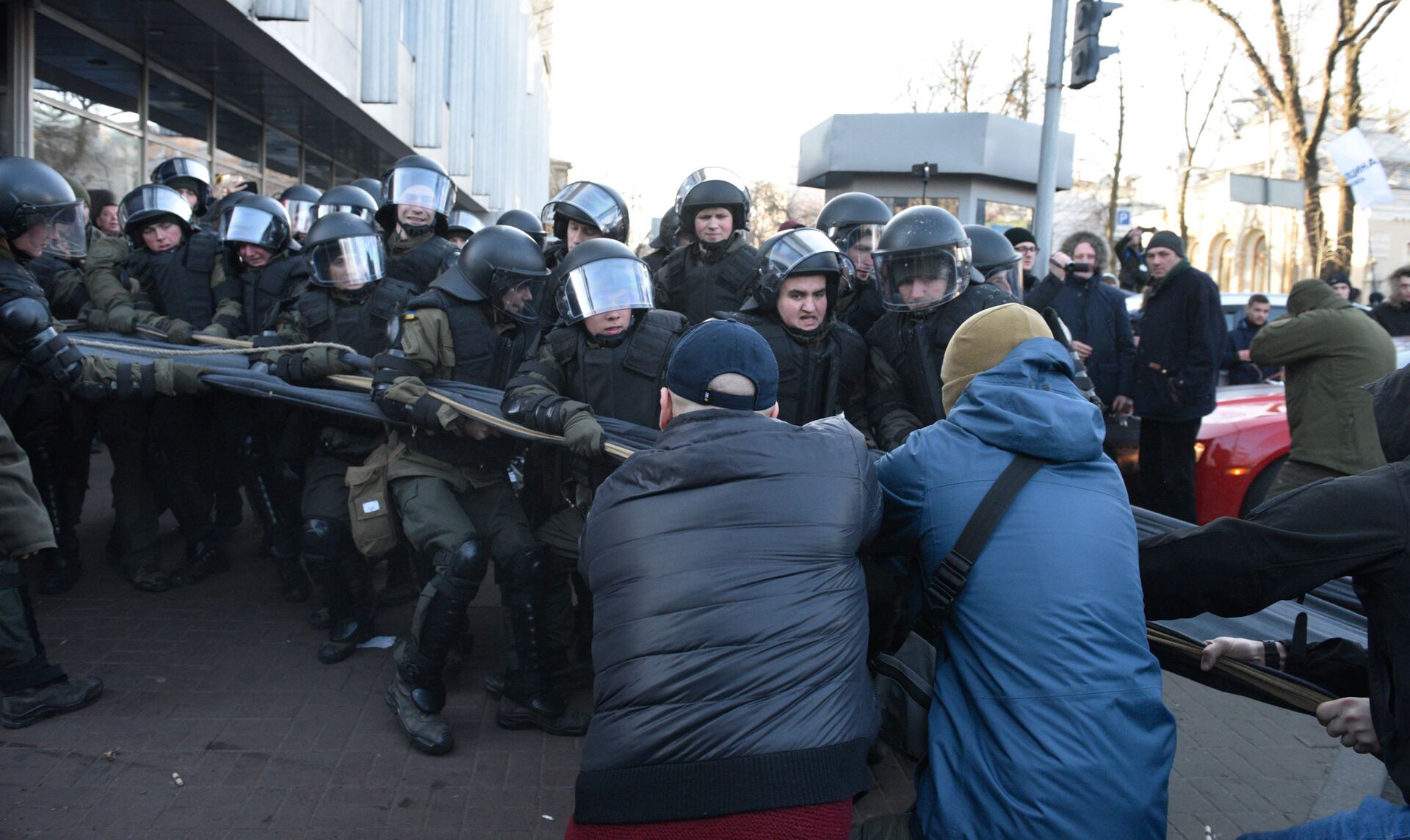
Activists of Ukrainian far-right movements clash with riot police during a protest of agricultural workers against land reform in Kiev, Ukraine.
© Sputnik / Stringer
/ "Russia is open to dialogue with Ukraine and is ready to discuss the most difficult issues. But for us it is important to understand that a partner defends its national interests, and does not serve others, is not an instrument in someone's hands to fight us," Putin stressed.
Ultimately, Putin emphasised that "Russia has never been and never will be an 'anti-Ukraine'. And what Ukraine should be is up to its citizens to decide."

